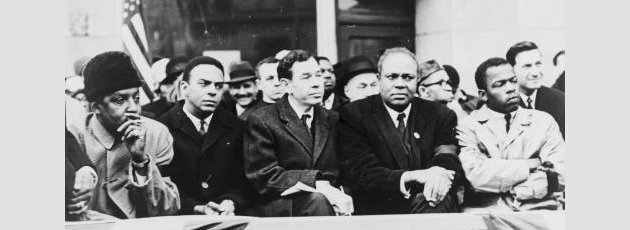- Home
- News & Blogs
- About Us
- What We Do
- Our Communities
- Info Centre
- Press
- Contact
- Archive 2019
- 2015 Elections: 11 new BME MP’s make history
- 70th Anniversary of the Partition of India
- Black Church Manifesto Questionnaire
- Brett Bailey: Exhibit B
- Briefing Paper: Ethnic Minorities in Politics and Public Life
- Civil Rights Leader Ratna Lachman dies
- ELLE Magazine: Young, Gifted, and Black
- External Jobs
- FeaturedVideo
- FeaturedVideo
- FeaturedVideo
- Gary Younge Book Sale
- George Osborne's budget increases racial disadvantage
- Goldsmiths Students' Union External Trustee
- International Commissioners condemn the appalling murder of Tyre Nichols
- Iqbal Wahhab OBE empowers Togo prisoners
- Job Vacancy: Head of Campaigns and Communications
- Media and Public Relations Officer for Jean Lambert MEP (full-time)
- Number 10 statement - race disparity unit
- Pathway to Success 2022
- Please donate £10 or more
- Rashan Charles had no Illegal Drugs
- Serena Williams: Black women should demand equal pay
- Thank you for your donation
- The Colour of Power 2021
- The Power of Poetry
- The UK election voter registration countdown begins now
- Volunteering roles at Community Alliance Lewisham (CAL)
50th Anniversary of the Civil Rights Act event
Earlier this month marked fifty years since the passing of the historic US Civil Rights Act.
To commemorate the monumental occasion, the British Library hosted two events in collaboration with UCL Institute of the Americas, KCL Institute of North American Studies and the US Embassy, London.
The first event featured a screening of the PBS documentary 1964 followed by a discussion with academics. The panel consisted of: Chair, Professor Iwan Morgan (UCL); Panellists: Dr Dan Matlin (KCL), Dr Althea Legal-Miller (UCL) and Dr Cara Rodway (Eccles Centre); Respondent, Dr Uta Balbier (KCL). Panellists shared their thoughts and research on the social conditions of the time that culminated in the demand for the legislation, the impact of the legislation at the time, and the achievements of the Act to present day. Dr Dan Matlin spoke about the controversial debate surrounding who we credit with the creation of the law, stating that
In my mind it needed both strong presidential and congressional leadership in the face of a very determined southern filibuster … A civil rights debate was only being debated on the floor of the house and the senate because of the very, very strong and determined actions of a mass based civil rights movement."
The second event was a lecture given by William P Jones, a history professor at the University of Wisconsin. Jones spoke a lot about the unsung heroes of the civil rights movement, individuals such as A. Phillip Randolph, Bayard Rustin, Dorothy Irene Height and Anna Arnold Hedgeman who all too were instrumental in the mobilisation of the masses and the implementation of social change. Jones went on to discuss the important economic impact the act had on African Americans, about the legacy of the act and whether with the election of President Obama America has become a post-racial society over night.
Although there has been significant improvement in the African American experience since the act was first passed, and nearly 8 in 10 Americans think there has been real progress since the 1960s in getting rid of racial segregation, figures show that blacks disproportionately remain at the bottom end economically and socially. There is a big disparity between white Americans and non-white Americans, in 2010 white Americans held more than 88% of the country’s wealth and only made 64% of the population, whereas Black Americans haled 2.7% of the country’s wealth although they made up 13% of the population. A 2013 report by the U.S sentencing Commission found that black Men receive prison sentences that are 19.5% longer than those of white men who have committed similar crimes.
In observing the law's 50th anniversary, President Obama had this to say:
Few pieces of legislation have defined our national identity as distinctly, or as powerfully. It transformed the concepts of justice, equality and democracy for generations to come."
The law outlawed discrimination based on race, colour, religion, sex or national origin in a wide variety of public facilities, accommodation and employment. It affirmed the basic ideals of the US constitution and provided the framework to ensure Liberty and Equality were available for everyone.
Kei-Retta Farrell
